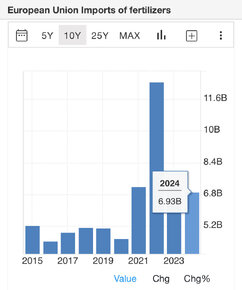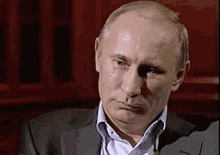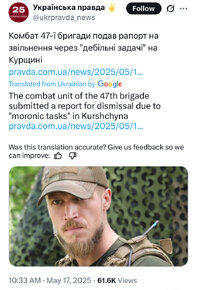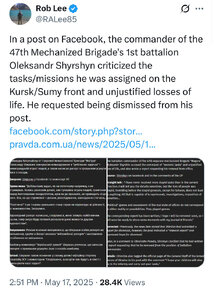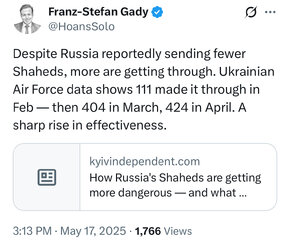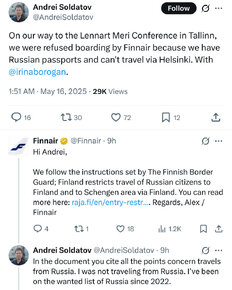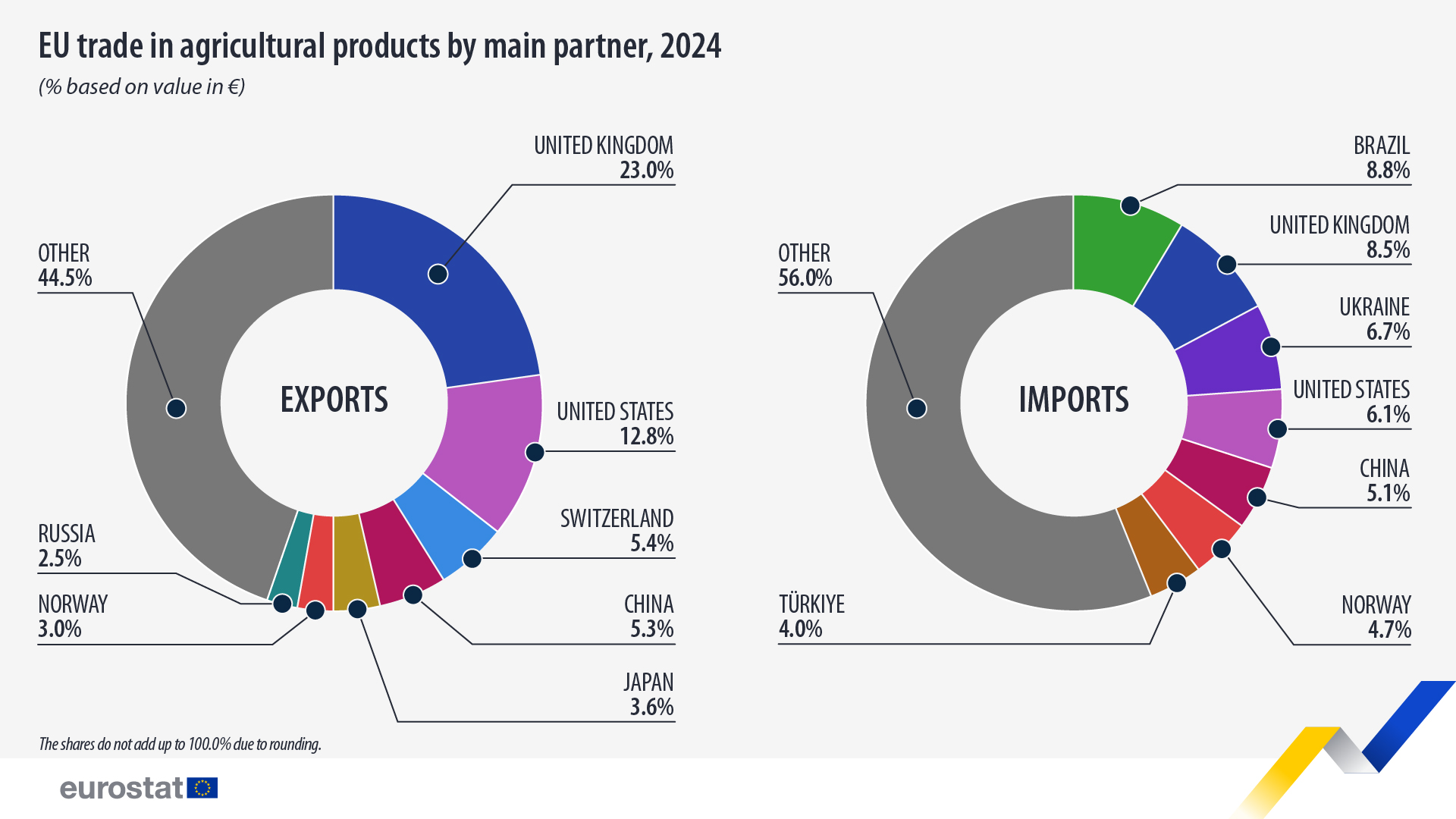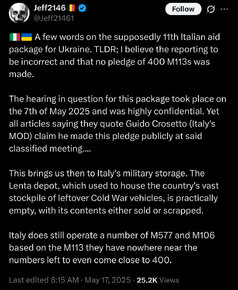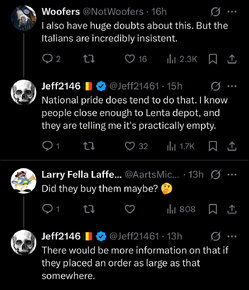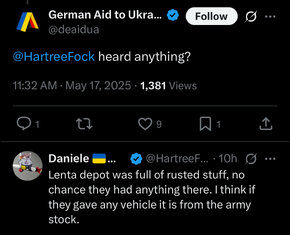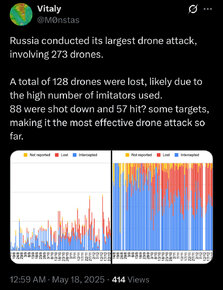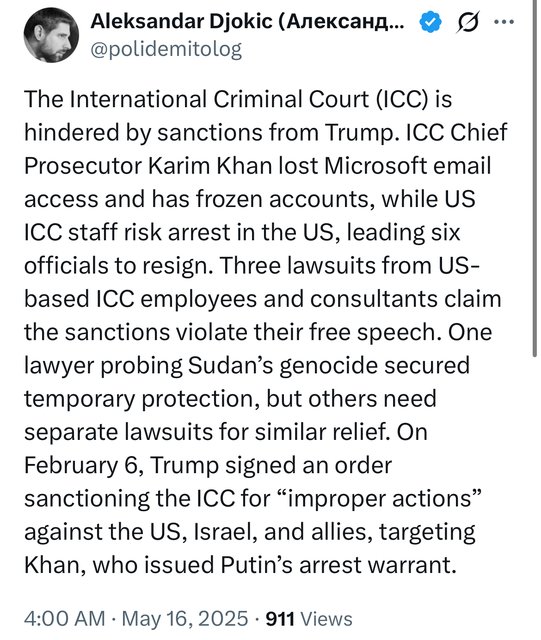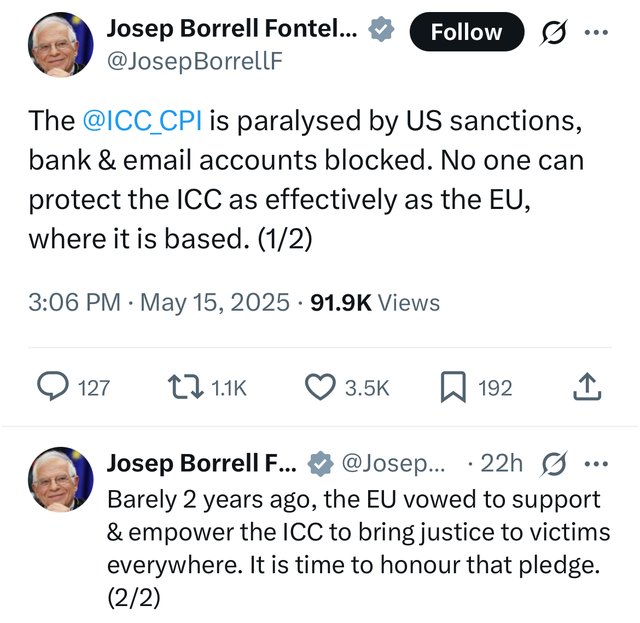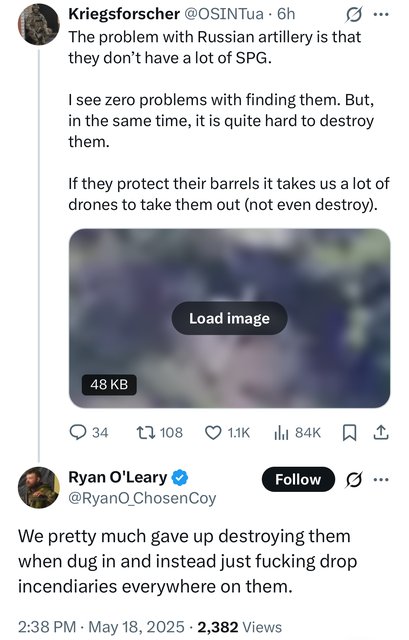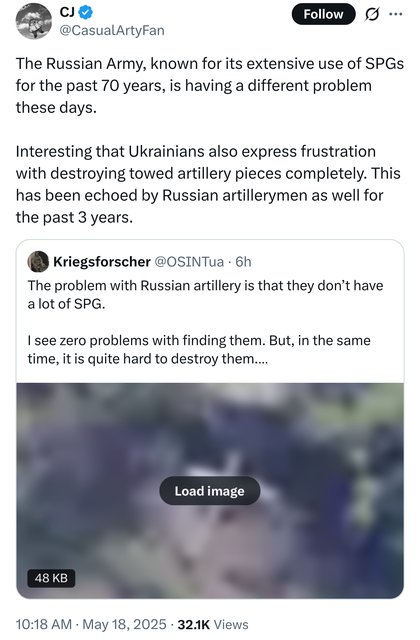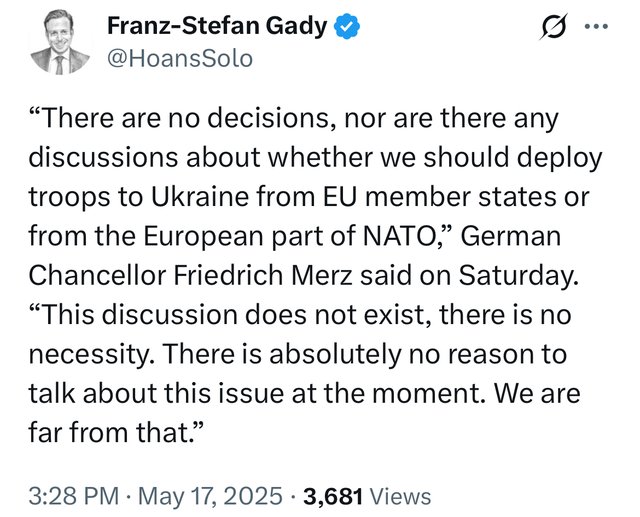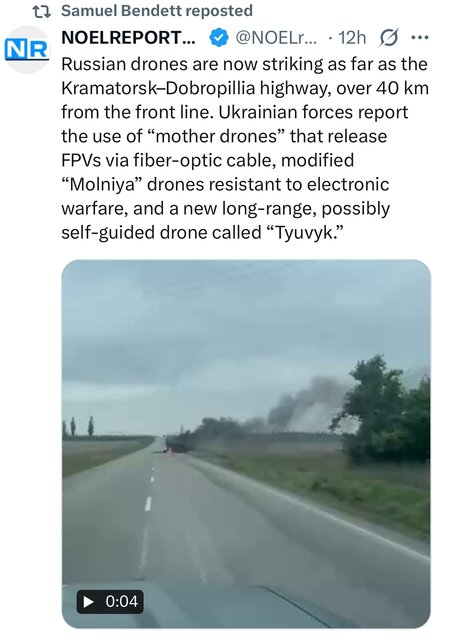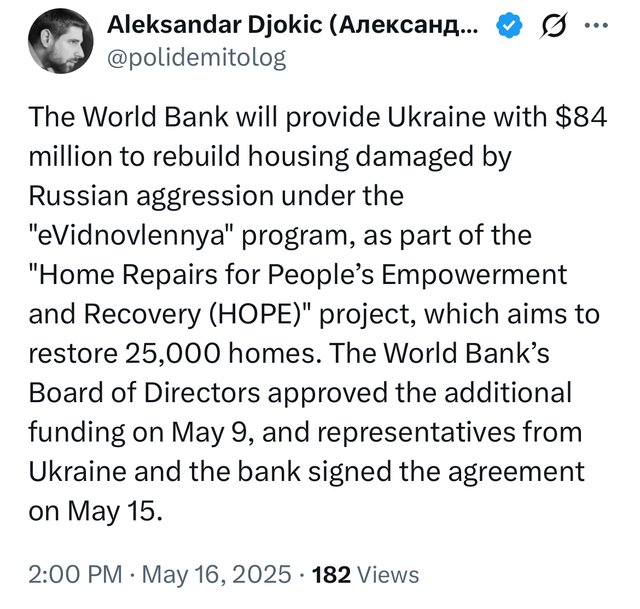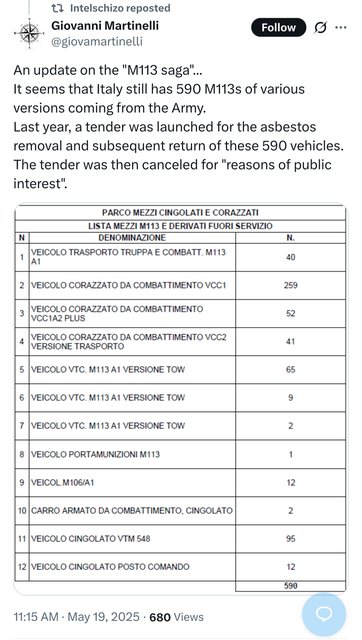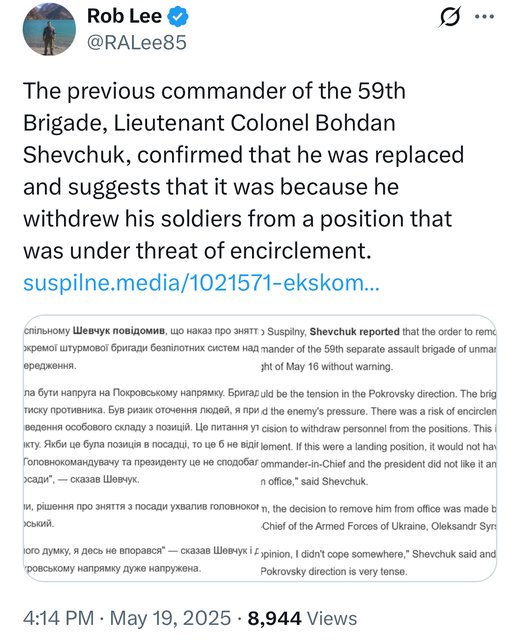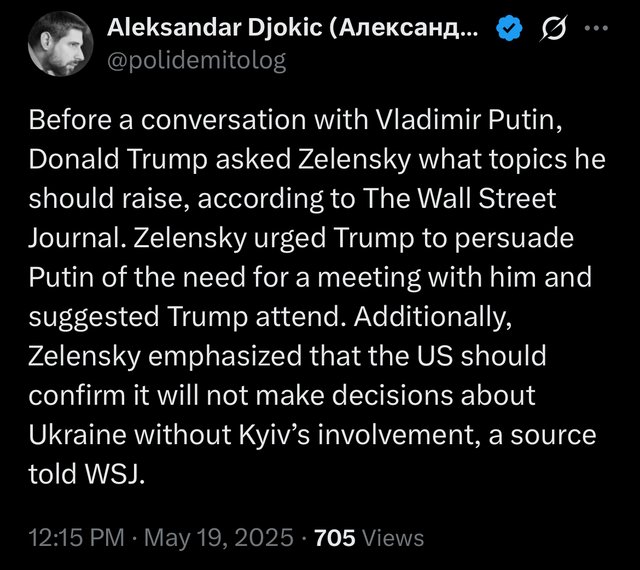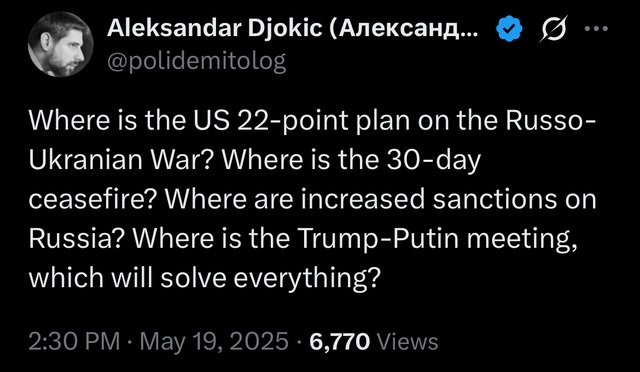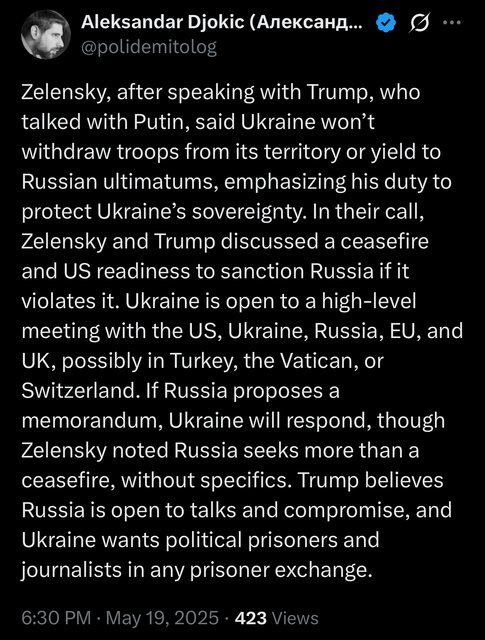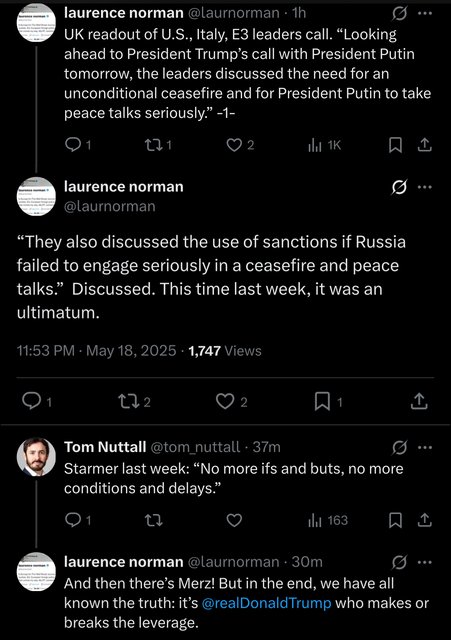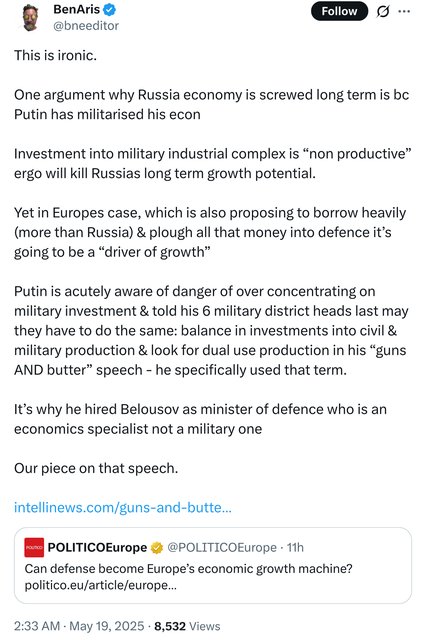KipPotapych
Well-Known Member
I believe everyone at this point understands though that there is very little, if any at all, space left to impose any additional sanctions without greatly, if not more, hurting oneself. This is on example, where the math is not going to work in EU’s favour, in my opinion:Presumably they're offering to stop passing additional packets of sanctions. So it's less of a "here's what we will pay" and more of "here's a stick we won't hit you with".
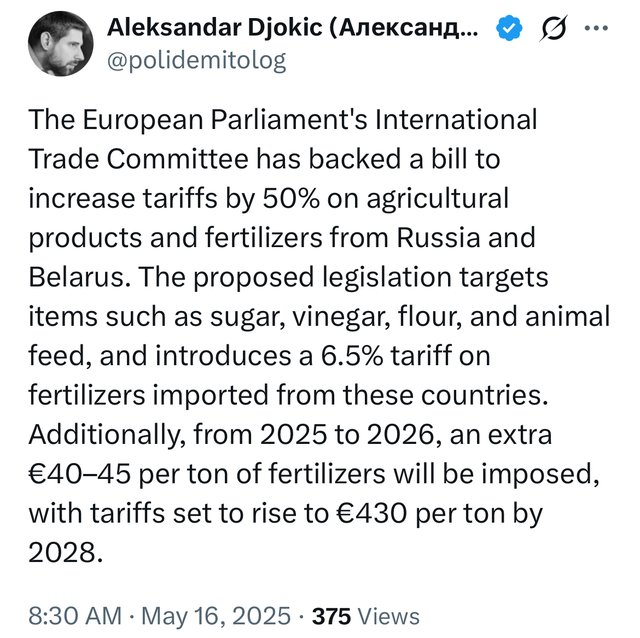
There will be a lot more manure dumped in the European cities, I would think. And the main issue with this thought process is that while Russia is the largest fertilizer exporter in the world, I believe the value of export is only about $15B per annum. So this is not serious talk. And, again, the holding end of the stick probably hurts more than the hitting end in this case.
Furthermore, to curtail Russian efforts to rearm, if the regularly advertised fear is true, the existing sanctions should remain in place as well, regardless of the (likely) outcomes of this war. On the part of the EU, judging by their messaging, this is where the wind seems to blow. I can’t say, however, if the EU is (really) able to oppose the USA when push comes to shove though. There is a lot of uncertainty here, in my opinion, which is definitely not helpful. Again, this is because the incentive of “not having more sanctions imposed on you” is no longer credible due to the reasons I described above.
They are also currently “offering” something else in return, though with likely very little value to Russia as well:
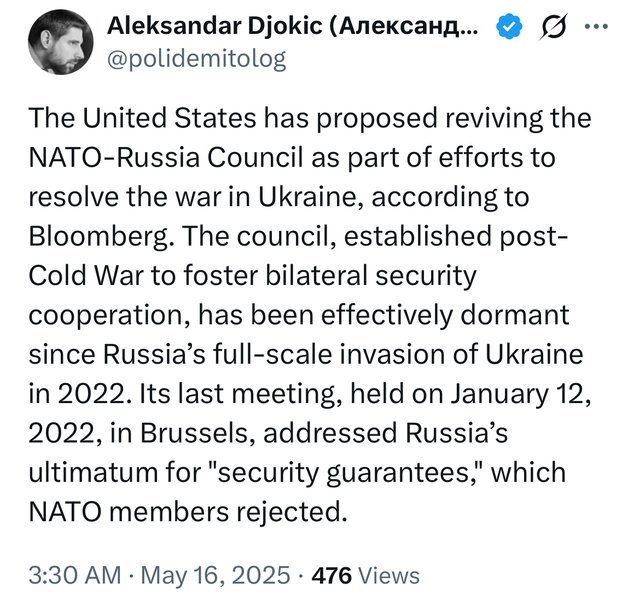
I personally do not see how this can have any value for Russia in the current circumstances.
You had never answered, why would Putin come? What would be the rationale behind it? Did he say he was coming? Is there any historic precedents for the attendance at this stage of negotiations (that are bound to go nowhere at this point)? The arguments may work for the Euro leaders (not really, but they have to keep up the appearance), but no rational person sees it that way.They went to Turkey and Zelensky waited for Putin. Putin didn't come.
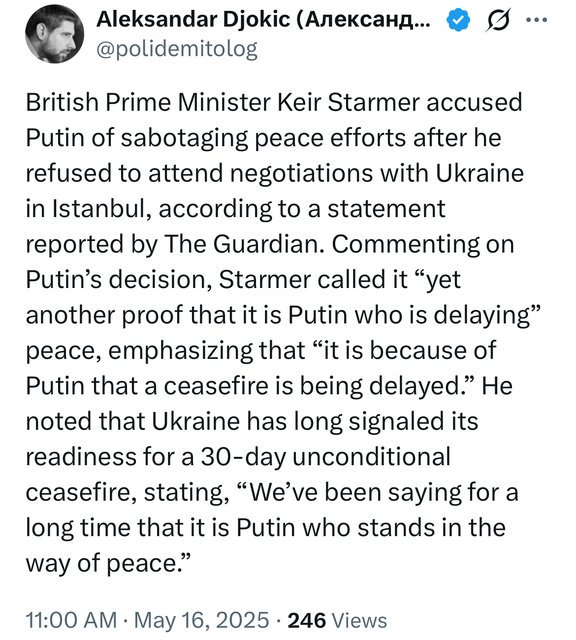
Putin sabotaged the talks by not coming to face Zelensky and, hence, he is the one delaying “peace”. How dumb is that. He also appears to equate “ceasefire” with “peace”. In all seriousness, it really feels like a visit to an institution for mentally ill at this point. Macron also chimed in:
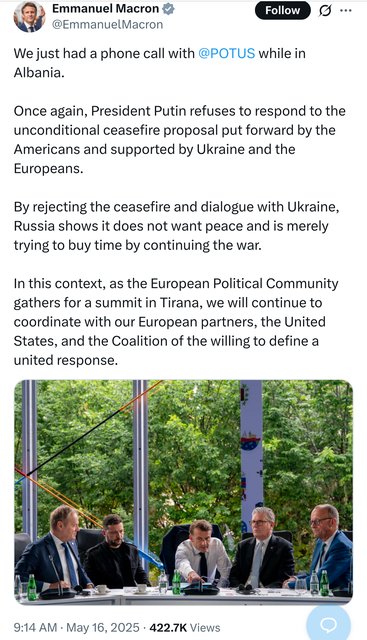
And I will say it once more, Putin didn’t “refuse to respond to the unconditional ceasefire proposal”. The Russians, including Putin himself, said long time ago that they find that proposal to be unacceptable. One would think the following (main) options exist: force Russia to accept your ultimatum, offer something else, do nothing and keep repeating the ultimatum that had already been rejected. Obviously, the latter was chosen by Europe because you do not have to do anything at all in that option, except for sending good vibes to Trump hoping he will do something in your favour, eventually. To note, at the same time these same people are in fear that the US would withdraw because no one is willing to do anything. Like I said, we are in the mental asylum territory here; and I am part of it because I am still discussing it here. I went for a walk not long ago and I laughed to myself (out loud, albeit quietly) a couple of times thinking about all this.
This lady (not a “nobody”) is exactly right:
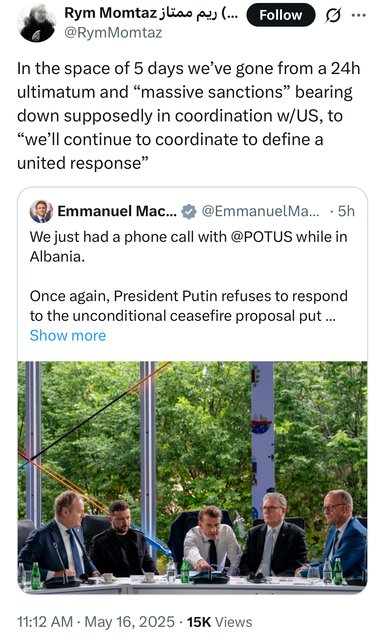
It is extremely clear here that Europe has very little to offer on their own in order to oppose Russia and the American involvement is critical. From the horse’s mouth:
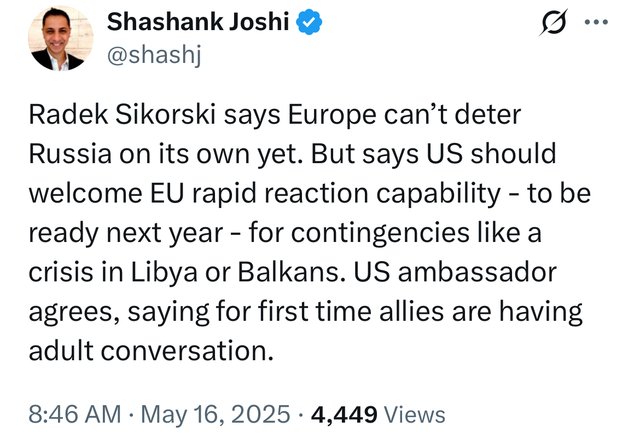
So next year, they will (presumably) be able to respond to a crisis in the Balkans or some third-world countries. This, in turn, suggests that there is also a very obvious incentive for Europe to stall the actual “peace talks” between Russia and Ukraine at this point, letting Ukraine get hammered while appeasing to Zelensky’s delusion and probably knowing full well that very significant concessions will have to be made in order to stop this war. No justice, no fairness, but reality (and Russian propaganda, I guess?).
I always wonder, reading your posts, where you get your ideas from and how you come to these conclusions.Anyway, the question is not whether they want to negotiate or not: They don't have the power to start negotiations because they are constantly under attack from a superior enemy.
Only Putin can start negotiations, therefore he is the sole responsible for talking or not talking.
Negotiations are not started by those who beat the guy already on the ground (or nearly falling?). They usually beat the guy until they are satisfied. The one being beaten can hope that a passer-by would insert themselves in his defense or the one beating would run out if steam or get satisfied. The latter is asinine, provided you you know the desired level of satisfaction is rather high, and depending on the former is… Well, you can see how it is working out (I know, great success).
Where do you imagine Ukraine to be at that point?If we talk about the constant military losses, it's not endless. There will be a point when the war effort will be so insane that, even in Russia, they will have to re-question their policy.
Here are a few questions for anyone who is willing to chime in with some thoughtful proposals:
- how do you see this end;
- what do you think is supposed to happen in the negotiations;
- what does an “honest” peace look like.
When someone says “missile defense”, they do not refer to “protecting their own missiles”, but to the means of intercepting the said missiles.Yes but, IMO with different meanings.
"Drone defence": To protect their own drones (Mig35 escorting UAVs)
"Anti-drone defence": To protect yourself against enemy drones.
(As not be being a native English speaker, I can be wrong... just saying.)
Fredled, fyi, the context of the discussion that my last attachment referred to was this:
The United States will begin discussions with European allies to reduce U.S. troops in Europe later this year, U.S. ambassador to NATO Matthew Whitaker said on Friday.
Asked to comment on a report that the Trump administration is considering withdrawing troops from Europe, Whitaker said "nothing has been determined".
"But as soon as we do, we are going to have these conversations in the structure of NATO", said Whitaker.
"It will be certainly after the summit, sometime later in the year, we are going to start those conversations... All our allies are ready to do it", he added, referring to the NATO summit in The Hague in June.[…]
"It’s more than 30 years of U.S. desire (to reduce troops in Europe), President Trump just said, enough, this is going to happen and it’s going to happen now, this is going to be orderly, but we are not going to have any more patience for foot dragging in this situation... We just need to work through the practical consequences", Whitaker said.
Last edited:



